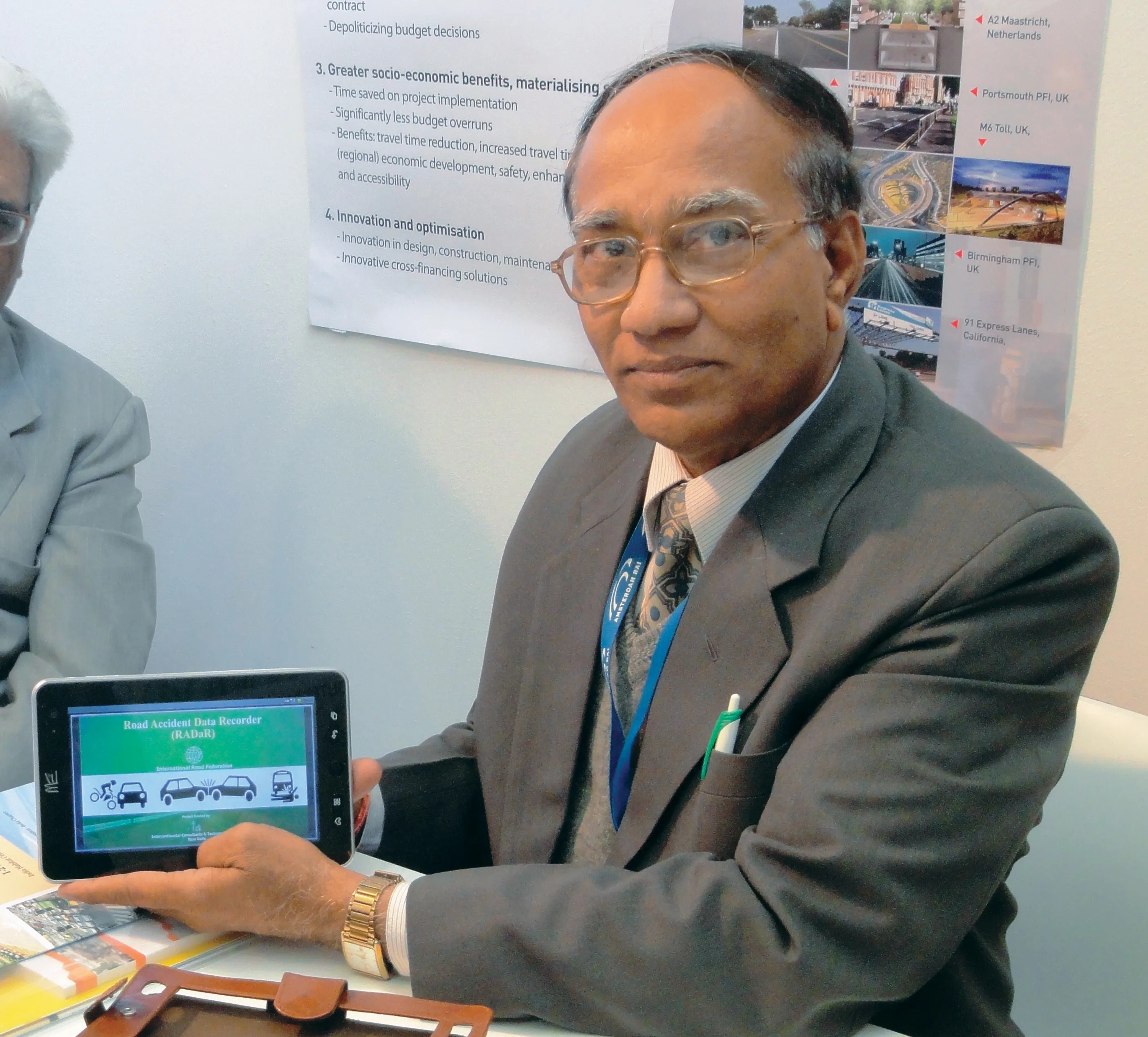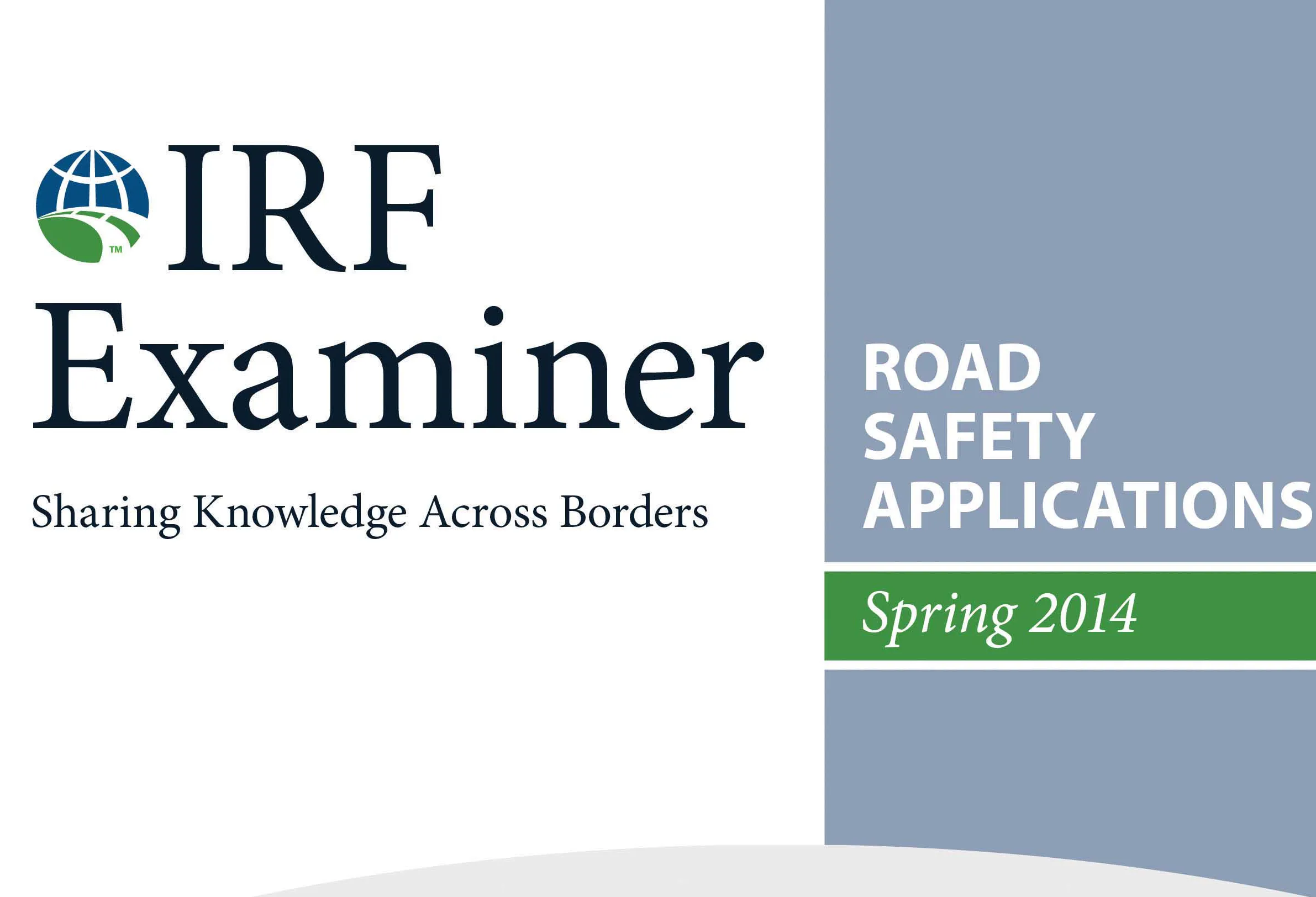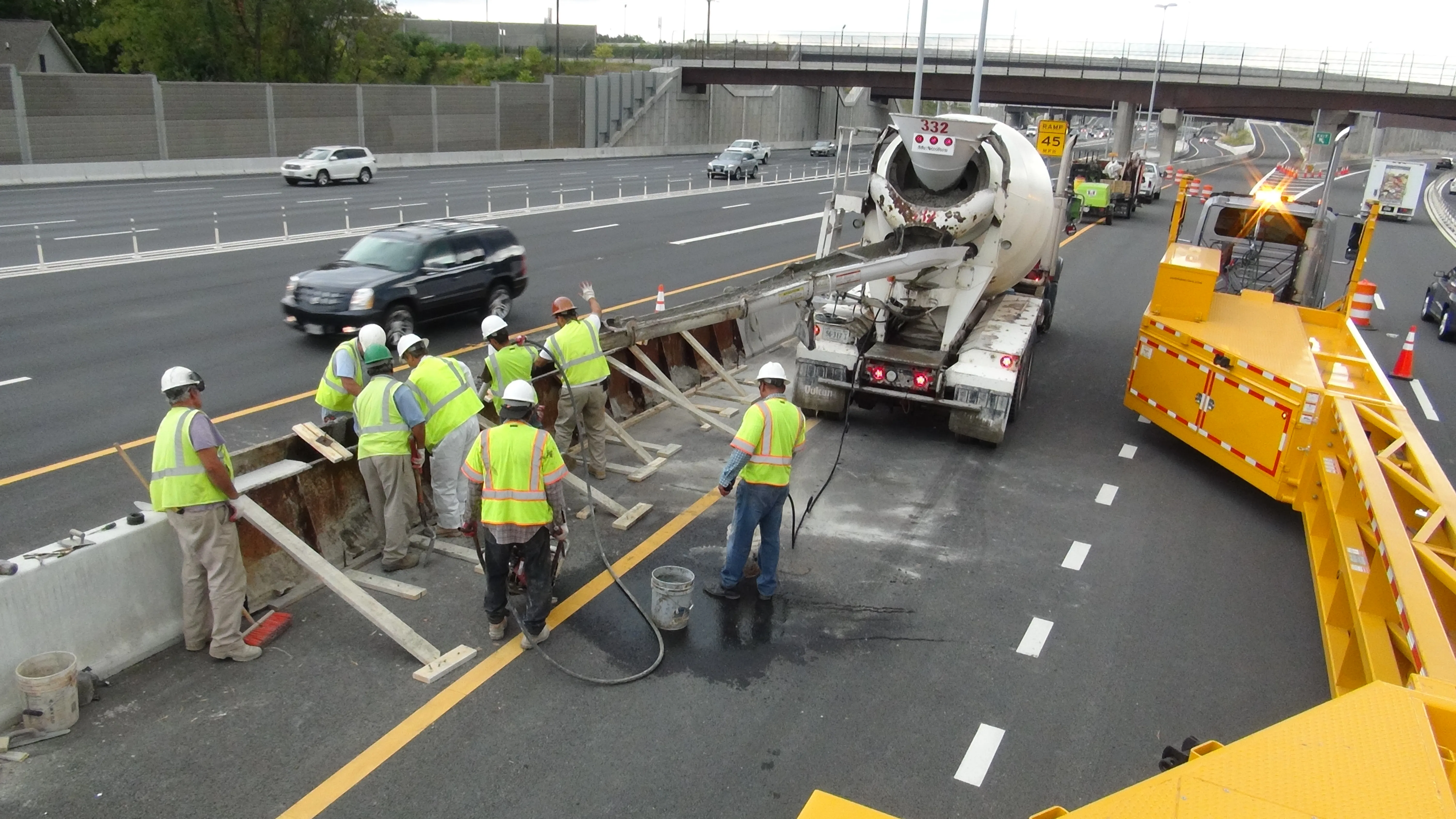IRF Geneva unveils a modern solution for road accident data management. This year's Intertraffic Amsterdam exhibition provided a high-profile backdrop for the launch of RADaR, a pioneering new tablet application developed to facilitate the on-site collection of precise and scientific accident data, primarily by traffic police. Introducing the application to an international audience gathered in the venue’s inaugural Smart Mobility Centre, IRF Geneva's director general, Sibylle Rupprecht, highlighted RADaR's
July 19, 2012
Read time: 3 mins

IRF Geneva unveils a modern solution for road accident data management.
This year'sIntroducing the application to an international audience gathered in the venue’s inaugural Smart Mobility Centre,
In developing and sponsoring RADaR on behalf of IRF, a team from the New Delhi based ICT worked from the basis that road crashes are multi factor events in both causes and outcomes. Existing accident data collection by traffic police tends not to reflect adequately the full picture regarding the causes of road accidents. The collection procedures on-site are often laborious, unreliable and insufficiently detailed. Crucially, there are currently few practical mechanisms in place to share the data with other key players like emergency services, insurance companies and road authorities.
More reliable and consistent data collection methodologies are urgently required to identify the causes of accidents with greater precision and thereby inform the design of countermeasures. “This is where our new Road Accident Data Recorder (RADaR) comes in,” explained Kiran K Kapila, the chairman of IRF Geneva. “RADaR has been expressly designed to help the traffic police collect accident data in a more systematic and comprehensive manner using a hand-held tablet computer.”
Certainly, the new application – which is currently undergoing extensive field testing in cooperation with the New Delhi traffic police department - attracted keen interest throughout Intertraffic from the steady stream of visitors to the IRF Geneva stand, where Professor PK Sikdar, one of the main initiators of the project, was on hand to demonstrate RADaR's value to police and other authorities from throughout the world.
“The application can be loaded into any tablet using an Android operating system,” he explained, “and data is recorded by means of user-friendly touch screen menus.
RADaR offers a compact solution that can be conveniently carried on the police officer's belt, and the software enables the use of built in telephone, GPS, GPRS, Digital Still & Video Camera, e-mail, and sound recording facilities. In addition, standard details can be pre-entered, thereby saving time and enhancing efficiency as well as accuracy.
Besides recording the crash site on a Google network map, the tablet even foresees the menu-driven generation of typical incident diagrams showing the given road layout and collision details.”
Once entered, the data can be downloaded onto a desktop or laptop at the Police Station, and the results viewed in Excel or any other common database format. The First Information Report (FIR) and other data relevant to the Police Department, emergency services and road authorities can be readily printed or shared immediately from the downloaded data.
Competitively priced, RADaR is supplied ready loaded into any make of tablet running the Android OS. Special terms and licenses are negotiable for bulk orders and the software can be easily adapted, in consultation with the relevant authorities, to correspond precisely with the specific conditions and procedures of the territory concerned. Registered users will be promptly informed by email as and when updates are available – with first year updates supplied free of charge.
- More information, including detailed brochures and presentations, is available on the dedicated page of the %$Linker:
2 External <?xml version="1.0" encoding="utf-16"?><dictionary /> 0 0 0 oLinkExternal www.irfnet.ch IRF Geneva false http://www.irfnet.ch/ false false %> website, and orders and inquiries can be directed to %$Linker:2 Email <?xml version="1.0" encoding="utf-16"?><dictionary /> 0 0 0 oLinkEmail [email protected] [email protected] false mailto:[email protected] true false %>.








